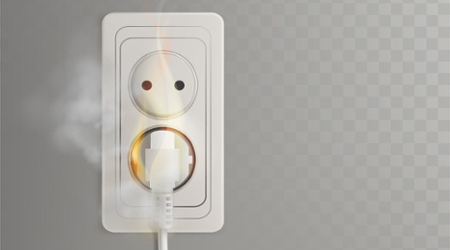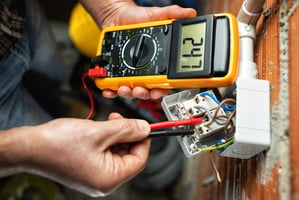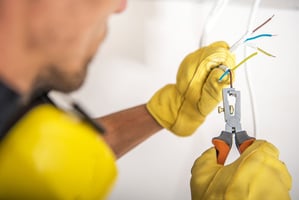As the New Year rolls in, start yours safely - with a Whole Home Electrical Safety Inspection....
Is the Aluminum Wiring In My Old House Dangerous?

The fundamental problem with aluminum wiring is that it can expand and contract excessively, which creates loose connections, and ultimately, arcing problems. When it arcs, it usually does so without tripping the breaker. This is a fire hazard and can be very dangerous.
What is arcing?
Arcing refers to any time a wire (usually a loose or corroded one) creates an intermittent contact that causes the wire to spark – aka arc – between metal contacts. When it arcs, it usually does so without tripping the breaker.
How do I know my wiring is arcing?
You'll hear a buzzing or hissing coming from the light switch or outlet in question. It's also wise to watch out for any outlet that smokes or sparks when you plug something into it. Outlets and switches aren't supposed to make noises like that, and they're definitely not supposed to smoke.
Why is an arcing wire so dangerous?
When a wire arcs, it translates to heat that can trigger an electrical fire by breaking down the insulation of surrounding individual conducting wires. It's less that the actual wiring is dangerous. The problems tend to occur at when they deteriorate at the point where it connects to outlets, light switches, and junction boxes.
Why shouldn’t I wait to call an electrician?
A buzzing light switch or outlet may not mean a fire is going to start right that minute, but it also doesn’t mean that it won’t. [too scary?] This is a definite fire hazard and can be very dangerous. It just takes one loose wire to start a fire.
How do I know if my house has aluminum wiring?
It was most commonly used in houses built in the 1950s, 1960s, and 1970s, or in homes that had significant electrical remodels around that time. This also applies to any additions put on older homes during that time period.
One way to check if you have this kind of wiring is to look in your basement or attic and check if you see any wire that is labeled AL or Aluminum. The only way to be 110% sure it is - or isn’t’ – aluminum is to have a licensed electrician come and evaluate it.
What’s the alternative?
Copper wiring is much more stable in this regard and is the preferred alternative in our experience.




.png?height=200&name=Wilcox_EVchargers_SW(2).png)